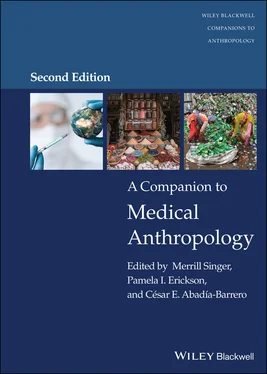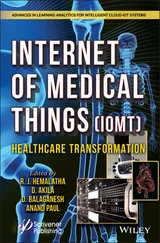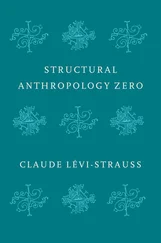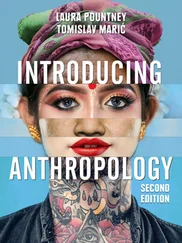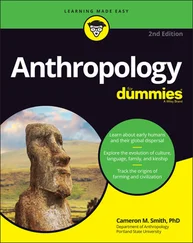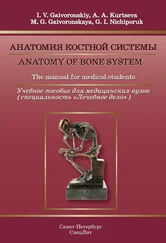Mark Nichteris Regents Professor emeritus and former coordinator of the Graduate Medical Anthropology Training Program at the University of Arizona. He holds a Doctorate degree in Anthropology as well as a master’s degree in public health, and postdoctorate training in cultural psychiatry and clinical anthropology. Mark holds joint appointments in the Departments of Family and Community Medicine and the Mel and Enid Zuckerman College of Public Health. One of his many areas of research is drug use, abuse, and harm reduction; the etiology and expression of dependency; and how drugs are used to manage time, respond to labor demands, enhance pleasure, establish identity, and negotiate social relations.
Charlotte A. Nobleis Assistant Professor in the School of Public Health at the University of North Texas Health Science Center at Fort Worth. She holds a doctoral degree in applied anthropology and a master of public health from the University of South Florida. Her research interests include food security, nutrition, and the experiences of people living with HIV. She has conducted research in Haiti, Costa Rica, Lesotho, and the United States. She has also served as program coordinator for two federally funded projects: The Teen Outreach Program Replication Project and the University of South Florida Maternal and Child Health Pipeline Training Program.
J. Bryan Pageis Professor of Anthropology at the University of Miami. He has secondary appointments in the Departments of Psychiatry and Sociology at that institution. He has conducted transdisciplinary research on the consequences of drug use for nearly 50 years. His focus on drug using behavior has relied on ethnographic, first-hand views in the users’ natural habitats, whether on the streets of San Jose, Costa Rica, the shooting galleries of Miami and Valencia, or the villages of the Seminole reservations. The perspectives gained from this kind of research have made possible the designing of laboratory experiments to establish the parameters of decontamination for injection paraphernalia and the implementation of interventions for preventing the spread of HIV infection among injecting drug users.
Julie Parkis Professor Emerita of Social Anthropology at the University of Auckland, New Zealand. Her research interests in medical anthropology have included emphases on inequality, gender and applied community health, with a geographic focus on Aotearoa New Zealand, and parts of Polynesia. Genetic conditions, infectious diseases, and well-being have featured in her recent work, published with members of her research teams: Haemophilia in Aotearoa New Zealand: More than a Bleeding Nuisance (Routledge 2019, 2020), “Towards Indigenous Policy and Practice: A Tuvaluan Framework for Wellbeing, Ola Lei” ( Journal of the Polynesian Society , 2021) and “The Predicament of d/Deaf: Towards an Anthropology of Non-Disability” ( Human Organization , 2015). She continues her collaboration with Ruth Fitzgerald and Michael Legge on publications on everyday ethics in the context of reproductive technologies and genetic conditions and with Judith Littleton on publications from their research on tuberculosis in New Zealand, the Cook Islands, and Tuvalu.
Marsha Quinlanis Medical Anthropologist in the Department of Anthropology at Washington State University. She concentrates on ethnomedicine and ethnobiology, including ethnozoology, ethnobotany, and health behavior in families. Prominent themes in her research are the cultural shaping of health and medicine (risks and treatment); cultural influence on individuals’ contact with plants and animals; and, the effects of human–plant or human–animal interactions on health and medicine. She has worked in North and South America, East Africa, and has especially worked in the Caribbean country of Dominica since 1993. She also conducts cross-cultural ethnology on topics related to her fieldwork-based research.
Gilbert Quinterois Professor in the School of Public and Community Health Sciences at the University of Montana. His research foci include examination of sociocultural aspects of drug use in several different populations in the United States, including American Indians, Hispanics, and young adult college students. His current interests include the integration of information and communication technologies into social interactions and drug-use practices among young adults in collegiate environments and the nonmedical use of pharmaceuticals.
Nancy Romero-Dazais Professor in the Department of Anthropology at the University of South Florida. As a medical anthropologist she has extensive experience conducting community-based research, designing and evaluating health-related interventions, and overseeing the delivery of social services to diverse populations. She has conducted research and program evaluation on HIV/AIDS, harm reduction, drug use, chronic disease management, food security, and health of minority populations. Other areas of interest include sexual and reproductive health and ethics of research. She has worked in the United States, Puerto Rico, Haiti, Costa Rica, and Lesotho.
Barbara Rylko-Baueris Adjunct Associate Professor in the Department of Anthropology at Michigan State University. Her writing has focused on health-care inequalities, structural violence, applied anthropology, political violence, and medicine in the Holocaust. She has served as Book Review Editor for Medical Anthropology Quarterly. Her recent publications include chapters in The Sage Handbook of Social Studies in Health and Medicine (2nd edition) and The Oxford Handbook of the Social Science of Poverty , The Syndemics and Structural Violence of the COVID Pandemic: Anthropological Insights on a Crisis (with Merrill Singer, in Open Anthropological Research, 2020), Global Health in Times of Violence (co-edited with Linda Whiteford and Paul Farmer, 2009), and A Polish Doctor in the Nazi Camps (2014).
Eleanor Shoreman-Ouimetis Assistant Professor of Human and Environment Interactions at the University of Connecticut whose research and teaching focuses on human–environment interactions, environmental justice, cross-cultural conservation practices, community response to natural hazards and the effects of climate change, and the links between culture, history, environmental ethics, and resource management. Shoreman-Ouimet’s recent publications have addressed anthropological approaches to the study of environmental repair, the influence of anthropocentrism in the social sciences, and facilitating cooperative efforts between anthropologists and conservation groups. In addition to teaching and researching issues pertaining to environment, Shoreman-Ouimet is also involved in research and teaching initiatives focused on increasing diversity, equity, and inclusion in the University setting, specifically studying the prevalence of racial microaggressions on university campuses.
Sandy Smith-Nonini, PhD, is a research assistant professor of Anthropology at the University of North Carolina at Chapel Hill. Her work has focused on the intersection of medical anthropology and political economy – including projects on health systems, resurgent infectious disease epidemics, working conditions of US migrant labor, and the relationship of oil dependence and debt to energy poverty. She authored Healing the Body Politic: El Salvador’s Popular Struggle for Health Rights – From Civil War to Neoliberal Peace, (Rutgers University Press, 2010), aided by a Richard Carley Hunt Award from the Wenner Gren Foundation. Sandy recently produced Dis.em.POWER.ed: Puerto Rico’s Perfect Storm , a film on the “fossil colonial” origins of the longest US blackout: www.disempoweredfilm.com.
Читать дальше
